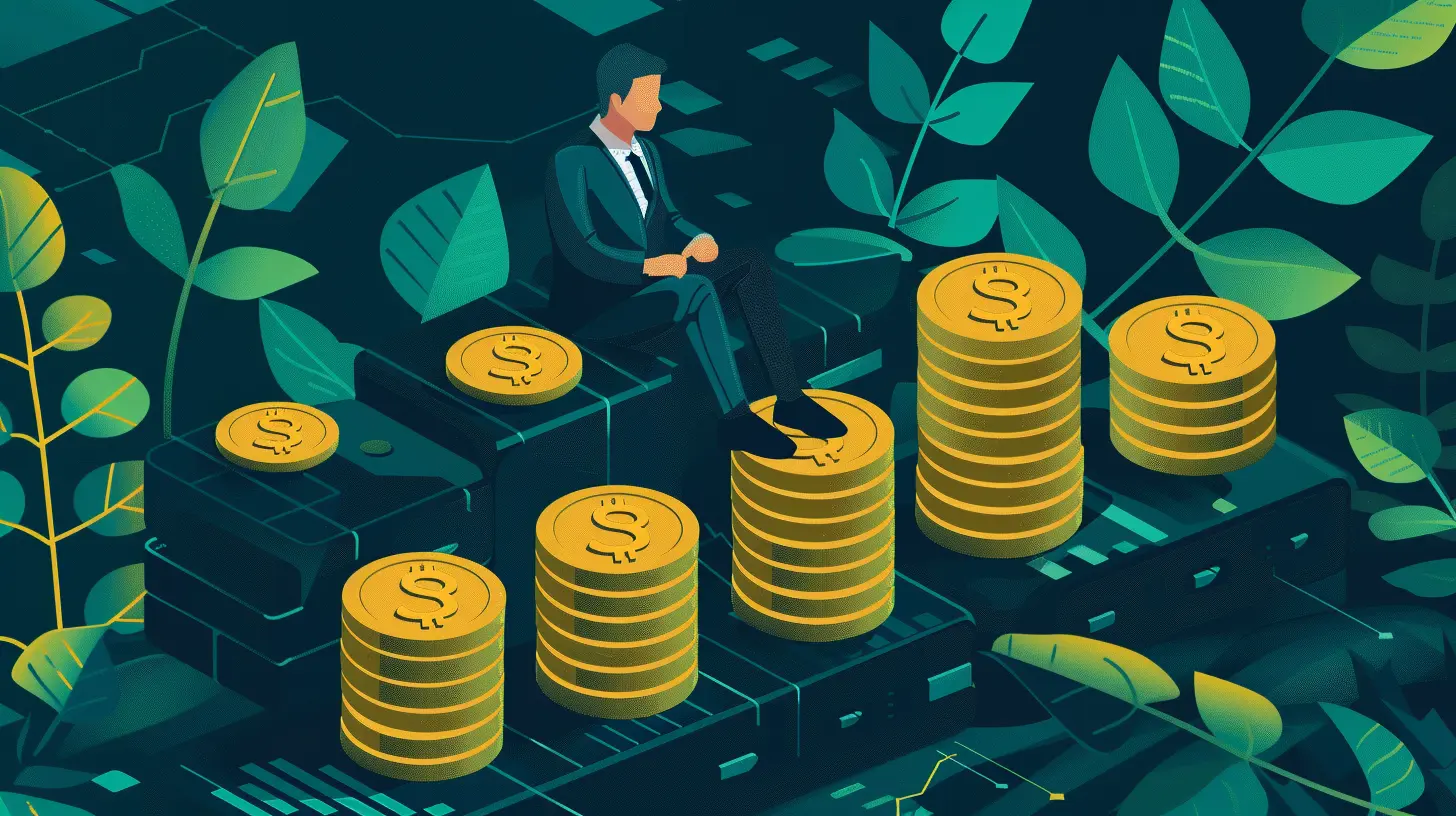Cryptocurrency Investment Risks You Need to Know
20 July 2025
Cryptocurrency has taken the world by storm. With stories of people making millions overnight, it’s no surprise that more and more investors are diving into the market. But hold on—before you jump in, you should be aware of the risks involved.
While crypto investing can be lucrative, it’s not all sunshine and rainbows. The market is highly volatile, unpredictable, and filled with potential pitfalls. If you’re thinking about putting your money into digital assets, understanding the risks is crucial.
In this guide, we’ll break down the biggest cryptocurrency investment risks so you can make informed decisions.

1. Extreme Market Volatility
One of the biggest risks of cryptocurrency investment is its wild price swings. Unlike traditional stocks, which generally move within reasonable limits, crypto prices can skyrocket or plummet within hours.Take Bitcoin, for example. In 2021, BTC surged to nearly $69,000, only to crash to around $20,000 a year later. Imagine investing your life savings at the peak—only to see your portfolio shrink before your eyes!
The volatility is driven by several factors:
- Speculation and hype
- Market sentiment
- Government regulations
- Media coverage
If you can't handle roller-coaster-like movements, investing in crypto might not be for you.

2. Regulatory Uncertainty
Cryptocurrencies exist in a gray legal area in many countries. Governments around the world are still figuring out how to regulate digital currencies, and sudden regulatory changes can drastically impact the market.For example, when China banned crypto trading and mining, the Bitcoin price took a massive hit. Similarly, the U.S. SEC frequently cracks down on certain crypto projects, causing panic among investors.
Some risks associated with regulations include:
- Governments banning crypto altogether
- Stricter tax laws on crypto gains
- Regulations that make trading more complex
- Exchange shutdowns due to legal issues
Always stay updated on regulatory news before making major investments.

3. Security Threats and Hacks
Unlike traditional banks, where your money is insured, cryptocurrencies are not protected. If you lose your private keys or fall victim to a hack, your funds are gone—forever!Crypto exchanges, wallets, and even individual investors have been targeted by hackers. Some scary incidents include:
- Mt. Gox hack (2014) – Over $450 million in Bitcoin was stolen
- The Ronin Network hack (2022) – Over $600 million looted from Axie Infinity’s network
- Phishing scams tricking investors into giving up their credentials
How can you protect yourself?
- Use hardware wallets instead of online ones
- Enable two-factor authentication (2FA) on your accounts
- Never share your private keys with anyone
- Be cautious of phishing emails and fake websites
Security is a huge concern in the crypto space—never take it lightly.

4. Lack of Consumer Protection
If a bank goes bankrupt, customers are typically protected by national insurance programs like FDIC in the U.S. or FSCS in the UK. But in the world of crypto? Not so much.If an exchange collapses or an online wallet service is hacked, there’s no safety net for you. A perfect example is the FTX collapse in 2022, where billions of customer funds vanished overnight.
Investors lost everything because their funds weren’t insured. Some people even had their life savings wiped out.
To minimize risk:
- Only keep trading funds on reputable exchanges
- Withdraw profits to a personal crypto wallet
- Diversify your investments instead of putting everything in one place
5. Scams and Fraud
The crypto world is full of bad actors looking to take advantage of newbies. Scammers prey on people’s greed and lack of knowledge, using tactics like:- Ponzi schemes – Fake investment opportunities offering "guaranteed" high returns
- Pump and dump schemes – Influencers hype up a coin, only to sell at the peak, leaving investors with worthless tokens
- Fake ICOs (Initial Coin Offerings) – Fraudulent projects vanish after raising funds
- Rug pulls – Developers create promising projects, collect money, and disappear
To avoid scams:
- Do your research before investing in any project
- Avoid deals that sound too good to be true
- Check if a project has a transparent team and whitepaper
If something feels sketchy, trust your gut—it probably is.
6. Market Manipulation
Crypto markets are not as regulated as traditional stock markets, making them prone to manipulation. Big players, or whales, control large portions of cryptocurrencies, allowing them to influence prices.Some common manipulative tactics include:
- Pump and dumps – A group inflates a coin's price, then dumps it, leaving small investors with losses
- Wash trading – Fake trading activity to create the illusion of demand
- Spoofing – Placing fake orders to mislead traders
This lack of oversight makes it harder for small investors to compete.
If you're investing in crypto, always check for unusual price spikes and trading activity before buying into the hype.
7. High Transaction Fees and Slow Processing Times
Cryptocurrency transactions can sometimes involve expensive fees, especially during times of high network congestion.For example:
- Ethereum gas fees can skyrocket during peak usage, sometimes costing more than the actual transaction
- Bitcoin transactions can take hours if the network is overloaded
These fees can eat into your profits, especially if you’re making frequent trades. Make sure to factor in transaction costs when planning your investments.
8. Loss of Access to Funds
Unlike regular bank accounts, where you can recover a forgotten password, losing access to your crypto wallet means losing everything—permanently.There are countless horror stories of people losing millions just because they:
- Forgot their private key
- Threw away a hard drive containing their crypto wallet
- Used an unreliable service that got hacked
Always back up your wallet information and store it securely. Keeping funds in a hardware wallet can also reduce the risk of losing access.
9. Emotional Investing and FOMO
Fear and greed drive many crypto investments. The fear of missing out (FOMO) often leads beginners to buy at all-time highs, only to see prices crash shortly after.On the flip side, panic selling during market dips can lock in losses instead of riding out the volatility.
To avoid emotional investing:
- Set a clear investment strategy and stick to it
- Avoid impulsive decisions based on hype or fear
- Only invest money you can afford to lose
Crypto is a long-term game—don’t let emotions get the best of you.
Final Thoughts
Cryptocurrency investment carries significant risks, and while there’s potential for high rewards, it’s not a guaranteed money-making machine. From extreme volatility to scams and security risks, navigating the crypto space requires caution and knowledge.Before investing, educate yourself, set realistic expectations, and always have a risk management strategy in place. Remember—never invest more than you’re willing to lose!
Would you still invest in crypto after knowing these risks? Let us know in the comments!
all images in this post were generated using AI tools
Category:
Investment RisksAuthor:

Yasmin McGee
Discussion
rate this article
1 comments
Vaughn McAllister
This article effectively highlights critical cryptocurrency investment risks, emphasizing market volatility, regulatory uncertainty, and security vulnerabilities. By educating investors on potential pitfalls, it fosters informed decision-making. Understanding these risks is essential for navigating the complex crypto landscape and safeguarding one's investment portfolio. A valuable read for potential investors.
August 7, 2025 at 10:29 AM

Yasmin McGee
Thank you for your thoughtful feedback! I'm glad you found the article helpful in shedding light on these important risks for investors.


